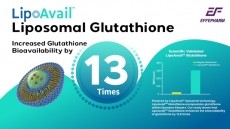Study adds to DSM's resveratrol safety reputation
Writing in the journal Food and Chemical Toxicology, researchers from DSM Nutritional Products report that the company’s high-purity trans-resveratrol (Resvida) does not cause irritation to skin and eyes, is non-mutagenic, and is non-genotoxic.
“These data suggest that trans-resveratrol is well tolerated in humans,” wrote the researchers, led by James Edwards. “Based on the data and information cited herein specific to the trans-resveratrol product Resvida and supported by the findings of generic trans-resveratrol, Resvida has been shown to have a low order of toxicity."
The study, which was performed in collaboration with toxicologists from the Orlando-based Burdock Group is important for supporting the safety profile of the company’s product, which already has GRAS status in the US.
High-purity
DSM launched Resvida, a synthetic but 'nature identical' resveratrol, into the market in 2008. According to DSM, this is the purest form of resveratrol currently found on the marketplace, with 99 per cent trans-resveratrol.
It comes in two forms: a crystalline form, with 99 percent purity; and a tablet grade form, with a purity of 90 percent.
Resveratrol, a compound found in red wine and linked to the so-called French Paradox, has been linked to a wide range of health benefits, including lifespan extension, anti-inflammatory effects, neuroprotective effects, prevention of decline of locomotor abilities, cardiovascular protective effects, and anti-microbial effects.
The company claims that the safety package surrounding the ingredient is unmatched by any other form of resveratrol currently available.
Adding to this safety package, data published in Food and Chemical Toxicology reported that tests with rabbits did not reveal any irritation to skin and eyes. Furthermore, bacterial reverse mutation assays with Salmonella typhimurium and Escherichia coli revealed the ingredient to be non-mutagenic.
A 28-day study with rats revealed no adverse effects when administered in doses of 50, 150 and 500 milligrams of resveratrol per kilogram of the animal per day. Such results were supported by an additional 90-day rat study that showed no adverse effects at doses up to 700 mg per kg of body weight per day.
“These studies provide evidence that Resvida is well tolerated and non-toxic,” concluded the researchers.
Source: Food and Chemical Toxicology
Volume 47, Issue 9, Pages 2170-2182
“Safety studies conducted on high-purity trans-resveratrol in experimental animals”
Authors: L.D. Williams, G.A. Burdock, J.A. Edwards, M. Beck, J. Bausch













